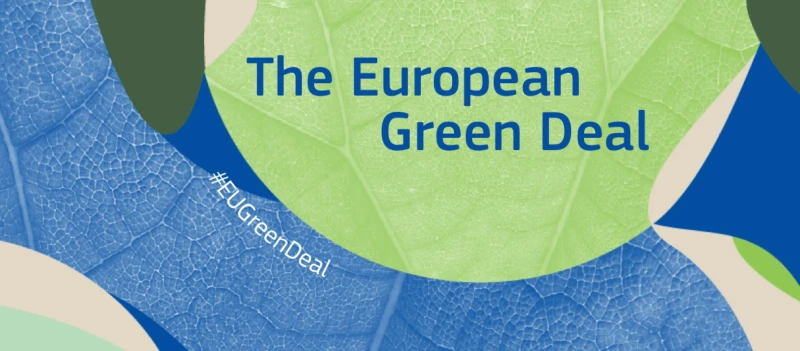Reckoning for European Green Deal ‘Farm to Fork’ strategy: EU lawmakers side with farmers and consumers, bury plan to cut chemical pesticide use by 50%
Reckoning for European Green Deal ‘Farm to Fork’ strategy: EU lawmakers side with farmers and consumers, bury plan to cut chemical pesticide use by 50%


In a stunning upset, the European Parliament voted down the “Sustainable Use of Pesticides” bill, which marked the cornerstone of the European Green Deal and the so-called “Farm to Fork” strategy. In 2020, the European Union planned a fundamental reform of the bloc’s agricultural sector, slashing pesticide use [by 50% by 2030], cutting fertilizer use, and boosting organic agriculture.
However, it quickly became apparent that the plans were going to be very expensive, according to the USDA, with agricultural production dropping between seven and twelve percent, and a significant impact on the overall GDP of the continent.
…
It turned out that cutting European farm land, all while depriving farmers of the right to adequately prevent pests from spreading, did not fare well with voters. … The EU’s ambitious plans, aimed at significantly reducing pesticide and fertilizer use while promoting organic agriculture, initially seemed like a bold step towards a more sustainable future. However, the practical implications of these proposals, particularly the potential negative impacts on agricultural production and GDP, led to a swift and decisive backlash.
For the United States, which also faces the challenge of balancing environmental conservation with agricultural productivity, the EU’s experience serves as a reminder that well-intentioned policies must be carefully crafted and thoroughly evaluated to avoid unintended consequences.
This is an excerpt. Read the original post here

 | Videos | More... |

Video: Nuclear energy will destroy us? Global warming is an existential threat? Chemicals are massacring bees? Donate to the Green Industrial Complex!
 | Bees & Pollinators | More... |

GLP podcast: Science journalism is a mess. Here’s how to fix it

Mosquito massacre: Can we safely tackle malaria with a CRISPR gene drive?

Are we facing an ‘Insect Apocalypse’ caused by ‘intensive, industrial’ farming and agricultural chemicals? The media say yes; Science says ‘no’
 | Infographics | More... |

Infographic: Global regulatory and health research agencies on whether glyphosate causes cancer
 | GMO FAQs | More... |

Why is there controversy over GMO foods but not GMO drugs?

How are GMOs labeled around the world?

How does genetic engineering differ from conventional breeding?
 | GLP Profiles | More... |

Alex Jones: Right-wing conspiracy theorist stokes fear of GMOs, pesticides to sell ‘health supplements’




 Viewpoint — Fact checking MAHA mythmakers: How wellness influencers and RFK, Jr. undermine American science and health
Viewpoint — Fact checking MAHA mythmakers: How wellness influencers and RFK, Jr. undermine American science and health Viewpoint: Video — Big Solar is gobbling up productive agricultural land and hurting farmers yet providing little energy or sustainabilty gains
Viewpoint: Video — Big Solar is gobbling up productive agricultural land and hurting farmers yet providing little energy or sustainabilty gains Fighting deforestation with CO2: Biotechnology breakthrough creates sustainable palm oil alternative for cosmetics
Fighting deforestation with CO2: Biotechnology breakthrough creates sustainable palm oil alternative for cosmetics Trust issues: What happens when therapists use ChatGPT?
Trust issues: What happens when therapists use ChatGPT? 30-year-old tomato line shows genetic resistance to devastating virus
30-year-old tomato line shows genetic resistance to devastating virus California, Washington, Oregon forge immunization alliance to safeguard vaccine access against federal undermining
California, Washington, Oregon forge immunization alliance to safeguard vaccine access against federal undermining The free-range chicken dilemma: Better for birds, but with substantial costs
The free-range chicken dilemma: Better for birds, but with substantial costs ‘You have to treat the brain first’: Rethinking chronic pain with Sanjay Gupta
‘You have to treat the brain first’: Rethinking chronic pain with Sanjay Gupta
